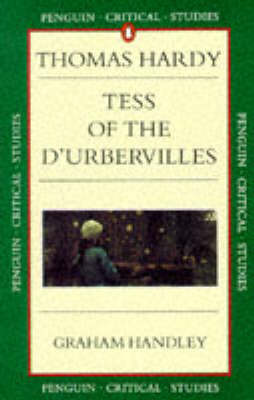Critical Studies
1 total work
This provides a criticism of one of Hardy's most popular novels, originally written in 1891, which is frequently set for A-level and university students. Examining the centrality of Hardy's heroine, Graham Handley focuses upon the phases of Tess' existence, emphasizing at the same time the symbolism and relevance of the novel's secondary characters. His analysis of the descriptive and figurative patterns that run through the novel, his commentary on the use of dialect and dialogue and the role of the omniscient author, and most significant, his exploration of the themes that dominate "Tess" - the subordination of women, deception and fate, among others - all serve to celebrate the artistic complexity, intensity and humanity of this novel.
